— HistoryMaps explains historic events using text, videos and maps. Incredibly informative and well-designed.
Posts from February 2023
Bullet Train
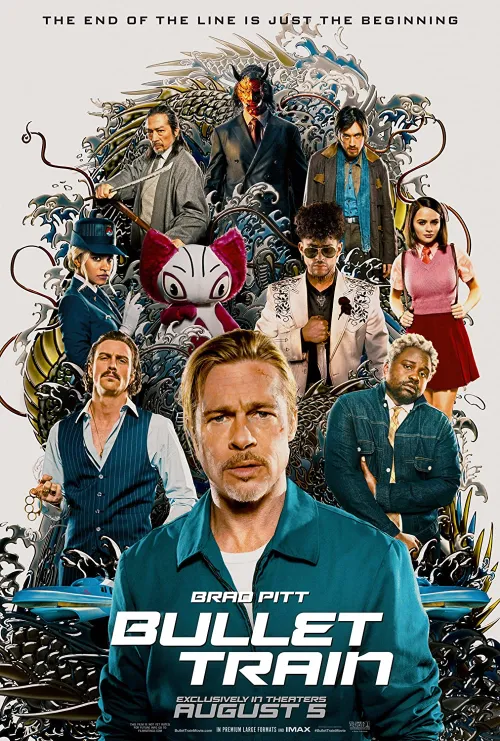
— Imagine Quentin Tarantino and Guy Ritchie teamed up to make Speed—you’d get Bullet Train. It has big-name cameos, bright colours, and many special effects—but in the end it’s dreary affair.
(2022) Director: David Leitch. Screenplay: Zak Olkewicz. Cast: Brad Pitt, Joey King, Aaron Taylor-Johnson, Brian Tyree Henry.
— Rachel Binx on the sameness in today’s web design fuelled by UI frameworks:
Also, it’s BORING. It’s BORING AS HELL. Guh, bring back interesting websites, bring back the creativity that the web offers. Bring back frontend devs who aren’t afraid to get down with the mouse event handlers!!
There is so much room for creative expression on the web! Standardizing UIs makes sense for large software companies — but please, let’s hold the line with the WWW also being a space for you and me to make weird little sites.
Yes this. But there’s also a growing population of web developers who never built a website from scratch, that’s why even personal websites all look the same today.
— Due to low rents, a mall in Portland has attracted independent shops, like a record store and a comic book shop. I’d love an indie shopping mall in Melbourne with bookshops where staff know books, record stores, and magazine shops, maybe even a decent bakery or butcher. It’s what many redevelopments of industrial complexes into shopping areas promise—some genuinely, most just for PR—but never quite pull off. What you get, at most, is shops selling overpriced label-less designer ware to the youth, feel-good shops selling trinkets and self-help books, and a burrito place that looks like it’s local, but in reality, it’s part of a nationwide chain.
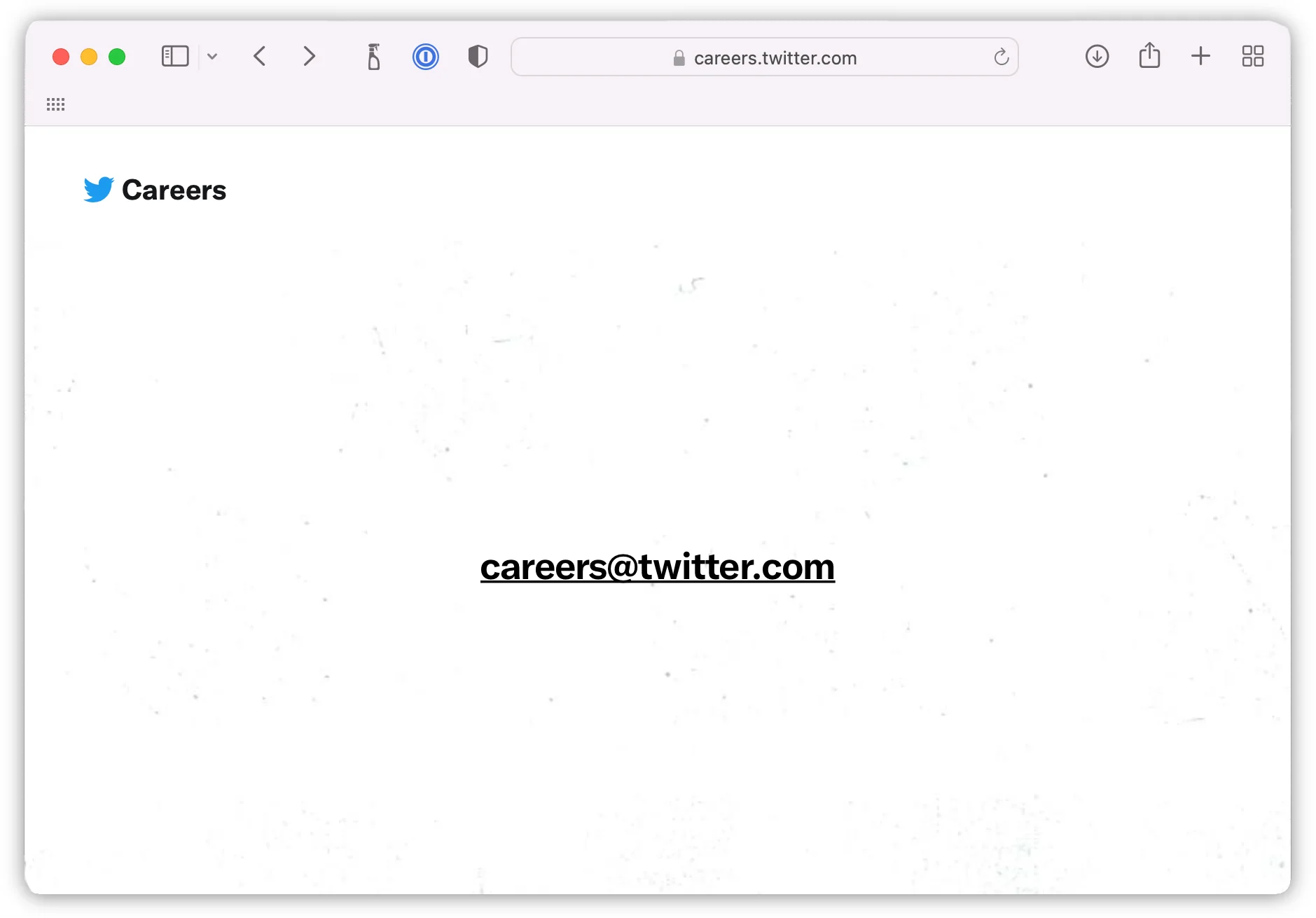
Twitter’s recruiting page got a Marie Kondo treatment, now fully embracing minimalism.
New York

New York is one of the places, big cities usually, where you need to know where to go. You either have good plan or someone to guide you around. If not, you naturally end up where everyone goes: The shopping districts that look the same everywhere, whether you’re in North America, Europe or Australia. The tourist traps with its gift shops, overpriced chain restaurants, and selfie opportunities. And the places that are made to look cool and exciting, like markets in industrial settings that sell overpriced street food and trinkets that collect dust at home. When I arrived in New York for a one-day visit, I stumbled around like an absolute tourist and ended up in precisely those places.

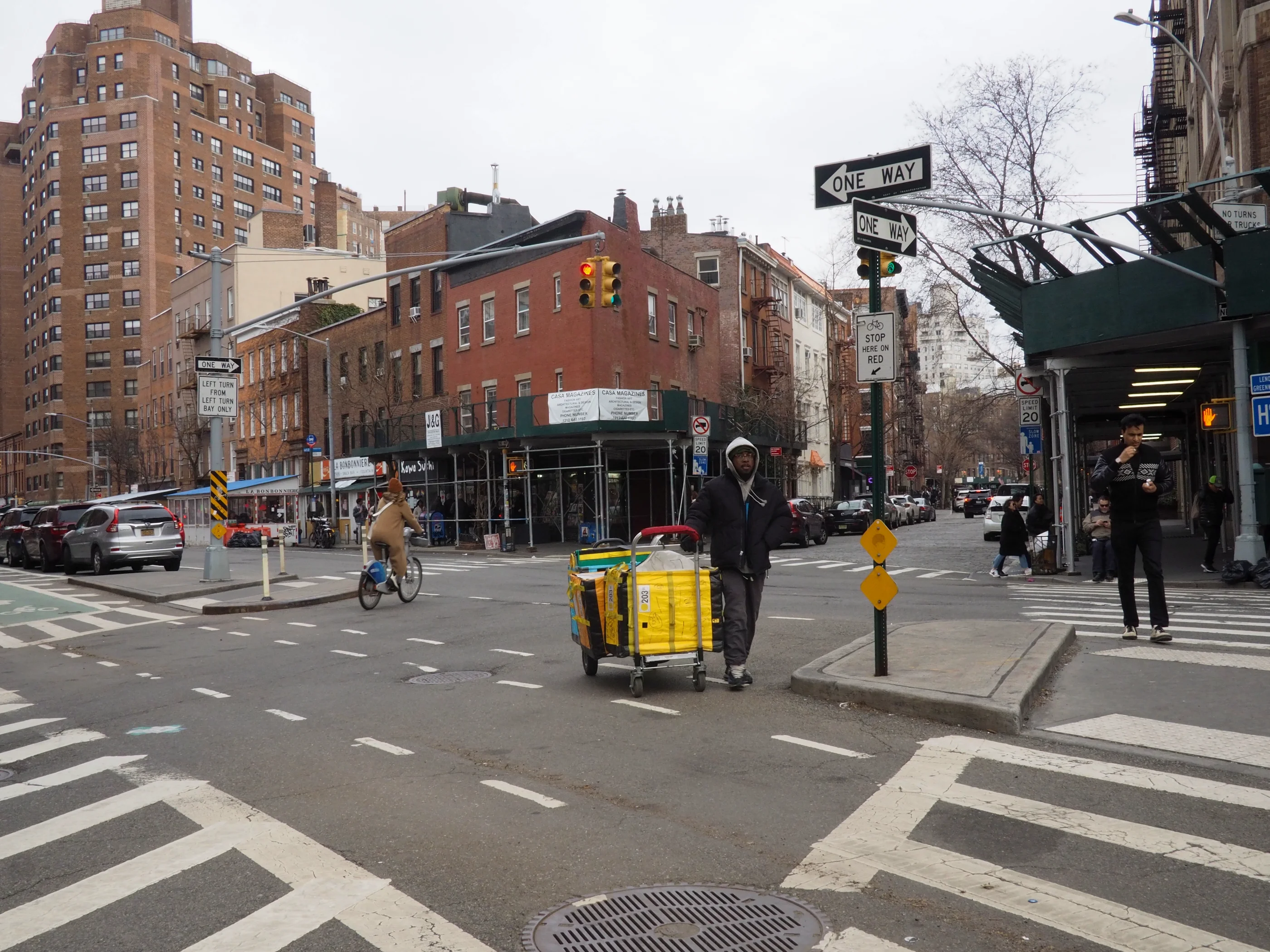
Large parts of Manhattan are devoid of any character now. I watched too many movies set in the New York of the 60s and 70s, and today’s New York—naturally—is very different. It’s now full bland modern buildings that have replaced the architecture I’ve come to know from these movies: Red bricks, art-deco features and fire escapes. Change is inevitable; I’m sure some people didn’t like the Empire State Building when it was completed in 1931, towering over Manhattan and dwarfing everything else.

If you’ve lived in a big city, you build a tolerance for these things; they are part of the city’s ever-changing nature. Still, when I go to New York, I want to feel like I’m in a Woody Allen movie.
— “On the internet, nobody knows you’re a human.” With the rise of machine-generated content, the evergreen problem of online identity—are you human or a dog—now extends to bots.
The Unbearable Weight of Massive Talent
— According to Letterboxd, Nick Cage appeared in 123 movies. I might have only seen a handful, and I don’t recall ever liking one. In The Unbearable Weight of Massive Talent, Nick Cage plays Nick Cage, an actor whose career has stalled. He signs up for a gig to appear at a superfan’s birthday party, where he meets many people who celebrate the absolute legend he is. He gets into a kerfuffle with the CIA and has to channel all his Cageness to not blow the cover. All this is supposed to be self-deprecating, but it’s only very cringey. In one scene, Cage literally makes out with himself. I only managed to get halfway through the film until I turned it off.
The Unbearable Weight of Massive Talent (2022). Director: Tom Gormican. Screenplay: Tom Gormican, Kevin Etten. Cast: Nick Cage, Pedro Pascal.
— “It’s So Sad When Old People Romanticize Their Heydays, Also the 90s Were Objectively the Best Time to Be Alive”:
The internet was pretty fun, when it was just this thing that you used occasionally, before you carried it around in your pocket and it became the way that millions of shopped, socialized, researched, and looked for love. When it was a curio. I think I got my first email address when I was a senior and remembered to check it maybe once a month.
Yeah the 90s were great. Not the fashion, or the Eurodance music. But everything else was and we had the Internet before it was gentrified, and it was new and raw and exciting.
— In 2007, Khoi Vinh wrote a beautiful love letter to Manhattan’s cinematography. I need to watch Manhattan again.
— Ben Yakas, writing for the Gothamist, explores the history of the colour scheme in New York’s subway map. It explains why the map doesn’t always use unique colours to designate lines in the Subway network. Granted, New York’s Subway system has more individual lines than London’s Tube network, but I find London’s map easier to use. Unique colours mean I can trace a line on the map to see where it’s going, and wayfinding inside stations is easier, too; I can follow the right colour to find my platform. (via The Map Room)
DC
— Blogging has been this week while I’m in Washington DC for work. Normal service will resume at the end of next week.



— Montaigne is an interesting low-tech approach to Web publishing: Save notes to a dedicated directory in Apple Notes and automatically publish to a website, including an RSS feed.
— Elon Musk woke up engineers Sunday night after the Super Bowl to change Twitter’s ranking algorithm, so it favours his tweets over everyone else’s. It’s like watching a spoilt little child throwing a tantrum in the toy store because mom won’t buy them the new LEGO space station.
The Menu
— The Menu has all the ingredients of a whodunnit: A group of characters meet in a remote place and get locked in a room. Something feels off. Except nobody has died. Yet.
Luckily, The Menu isn’t one of the dreaded murder mysteries that are making a comeback at the moment—no it’s a parody of pretentious haute cuisine that often isn’t about the taste of food or even feeding people but about poncy concepts. Like clothing presented at fashion shows that nobody would ever wear off a catwalk.
The Menu (2022). Director: Mark Mylod. Screenplay: Seth Reiss, Will Tracy. Cast: Ralph Fiennes, Anya Taylor-Joy, Nicholas Hoult.
— A little nugget by Nick Herr I enjoyed:
[…] newsletters and personal blogs — which are actually the same thing, but I do not think the investors backing Substack have noticed
It’s funny, ‘cause it’s true.
Raging Bull
— Vincent Canby writing For The New York Times in 1980, when Raging Bull was first released:
It’s exceedingly violent as well as poetic and, finally, humane in the way of unsentimental fiction that understands that a life - any life - can only be appreciated when the darkness that surrounds it is acknowledged. There’s scarcely a minute in ‘’Raging Bull’‘ that isn’t edged by intimations of mortality. Jake La Motta, played by Robert De Niro in what may be the performance of his career, is a titanic character, a furious original, a mean , inarticulate, Bronx-bred fighter whom the movie refuses to explain away in either sociological or psychiatric terms, or even in terms of the Roman Catholicism of his Italian-American heritage.
I couldn’t describe the movie any better. Raging Bull is a fantastic film.
Raging Bull (1980). Director: Martin Scorsese. Screenplay: Paul Schrader, Mardik Martin. Cast: Robert De Niro, Joe Pesci, Cathy Moriarty.
— Ryan Broderick predicts how AI, now introduced to search engines, will change the never-ending quest to route internet traffic to websites:
On the brand side, companies will pay for greater visibility in the A.I. recommendations. For instance, a car company might pay to be among the options listed for “the best mid-size sedan” by the A.I. for a financial quarter. There’ll be all kinds of fights about what is and isn’t an ad.
Google adsense-like programs for A.I. citations will roll out for smaller publishers and the last remaining bloggers, like the food writers who make the recipes the A.I.s are spitting out. There will also probably be some convoluted way to reformat your site to better feed the A.I. And I imagine Google will probably also figure out a way to shoehorn YouTube in there somehow.
And, finally, all of these initiatives will lead to a further arms race between A.I. platforms and individuals using A.I. tools of their own to game the system, which will further atrophy the non-A.I.-driven parts of the web.
I hope I’m wrong!
I hope he’s wrong too.

— Clive Thompson advocates for us to use RSS to rewild our online attention—away from algorithmically curated timelines. Since I went back to RSS, first through a weekly summary via email, now with NetNewsWire, the material I read is more diverse and more thoughtful. There’s noticeably less repetition. Sharing a link on a blog requires more effort; there simply is no retweet button to drag a post into your timeline. And that’s a feature of blogs.
The Satsuma Complex
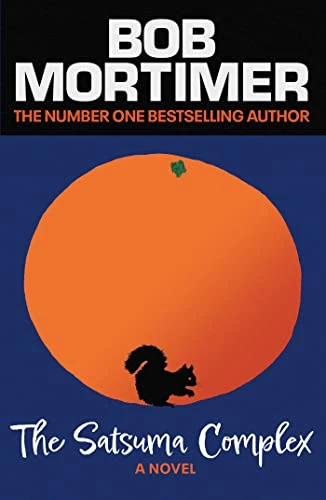
— I was introduced to Bob Mortimer not long ago by a friend. He does the kind of comedy I enjoy: Slapstick, often on the silly side. I love his show Gone Fishing, which he hosts with Paul Whitehouse, and I inhaled his biography And Away…
Too bad, The Satsuma Complex isn’t up there with Mortimer’s other work. The whole story is flat, and I repeatedly checked how many pages I had left to read. The book is fun and somewhat entertaining. Mortimer writes like he talks, which is why this book would work better as a movie or an audiobook read by Mortimer himself, putting on a different voice for each character.
— Shift Happens, a beautifully curated and designed, 1,216-page, two-volume book about the history of keyboards, is now available to support and pre-order on Kickstarter. It’s not cheap, but it looks like the US$150 are worth every penny. (Via: pretty much everyone)
A grand tribute at the Grammy awards marking 50 Years of Hip Hop. It perfectly recreates the time when Hip Hop took the final turn off the street into show business: Missy Elliot has her moment. After that, everything is less about words and mostly about choreographed dancing.
— Connor Oliver still uses an old Macintosh Classic II:
This Mac has no form of notification system built in, it never begs for your attention and its applications never try to distract you from what you are doing, begging you to look at them instead. If I get distracted while using this Mac the fault lies squarely on me, not the computer and not the programs running on it.
I had an old MacBook that I used only for writing after replacing it with a newer machine for my daily work. The battery was dead, so I had to sit down near a power outlet when I wanted to use it. I hadn’t set up emails on this machine or installed any instant messaging applications, no code editors, and I didn’t transfer my audio files into iTunes. The only application I installed was iA Writer and some command-line tools so I could convert my writing from Markdown into other formats. The only thing I could do was to write and focus on words.
It was the most distraction-free computer I used in the past 20 years. I wish I had kept it.
(via Daring Fireball)
To What End
— I remember I enjoyed Oddisee’s People Hear What They See. To What End isn’t bad, but it isn’t great either. Like a lot of present-day Hip Hop, it sounds a little too much like Kendrick Lamar.
— Alan Jacobs on note taking and reviewing:
No, the tools don’t really matter to me, and I have learned not to fuss about them. What’s essential is scheduling time — I set aside an hour each Monday morning and a whole morning on or near the first of every month — to go over all of those notes and do a kind of self-assessment. I sit down with my notebook and my computer and ask: Where am I in my current projects? What did I accomplish last week? What do I need to think about further? Is there any research or reading I need to be doing? What should be my priorities this week (or this month)? That kind of thing.
I could have the best note-taking system in the world and I’d still be lost if I didn’t have regular periods for review and reflection.
I prefer simple advice such as this, actually actionable advice, to any of the hustle porn you find on LinkedIn these days.
— “One Day They’ll Say This Was the Best (and Worst) Thing I Ever Made.” Elizabeth Spiers, founding editor of Gawker, reflects on its second death.
Kill Your Darlings
— A look at the early days of the Beat Generation. Good movie.
Kill Your Darlings (2013). Director: John Krokidas. Screenplay: John Krokidas, Austin Bunn. Cast: Daniel Radcliffe, Dane DeHaan, Ben Foster.
— Gruber makes a great point about why design is important even if you can’t measure “good design” like you can count app downloads, active users or time spent in the app.
— A couple of months ago, when NetNewsWire announced you can follow Twitter accounts through their app, I wrote:
Let’s hope all this work wasn’t for nothing.
Turns out it was. Twitter is shutting down free access to their APIs. The move kills every Twitter bot there is unless their maintainers pay, including those posting links to frequently updated sites, like kottke.org and Daring Fireball.
The Last 747
— I had a toy Boeing 747 as a kid, and I was well excited when I boarded one for the first time on a trip to the US in 2005. I was surprised to learn this week that they have been building 747s until now. The last jumbo jet ever to be built took off from Everett yesterday, where it was built, to fly to Cincinnati. On the way, the pilots took a little detour.

Queen of the skies.
If you want to experience what air travel was like in the 90s, you should fly a 747 with Lufthansa while you still can. There is hardly any space in the overhead lockers, the seats and the entertainment system—everything really—feel like they are from a different time, and everything is shaking and squeaking during take-off.
The Chronic
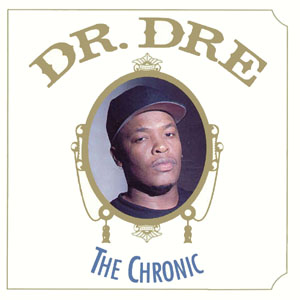
— Tom Breihan, Sterogum (via kottke.org):
Dr. Dre’s 1992 solo debut The Chronic is arguably the most important rap album in history — the record that turned hardcore rap into blockbuster entertainment, showed the uncompromising street music could sell in numbers that nobody had ever predicted, and introduced a vast cast of characters, the young Snoop Doggy Dogg chief among them.
[…]
The Chronic returns to streaming services today, and this is supposedly a celebration for the album’s 30th anniversary, which actually happened back in December.
Small detail: Spotify shows 2023 as the release year for The Chronic. Shows how much they care about music.
— Kevin Systrom and Mike Krieger, founders of Instagram, are working on a new project:
The simplest way to understand Artifact is as a kind of TikTok for text, though you might also call it Google Reader reborn as a mobile app, or maybe even a surprise attack on Twitter.
Sounds intriguing, but I’m not sure I want a TikTok for text. I joined the waitlist because you’re not supposed to judge a book by its cover.
Weekend at Bernie's
— I like a good, old-fashioned comedy. Larry and Richard find Bernie’s body and cover up his death so they can enjoy their free weekend Bernie’s beach house in the Hamptons. Weekend at Bernie’s is ridiculous and silly, like Caddyshack or Three Amigos. Most people hate these kinds of films, but not me.
Weekend at Bernie’s (1989). Director: Ted Kotcheff. Cast: Andrew McCarthy, Jonathan Silverman, Catherine Mary Stewart, Terry Kiser.
— A Seinfeld-like AI-generated sitcom streams forever on Twitch. Skyler Hartle, one of its creators:
As generative media gets better, we have this notion that at any point, you’re gonna be able to turn on the future equivalent of Netflix and watch a show perpetually, nonstop as much as you want. You don’t just have seven seasons of a show, you have seven hundred, or infinite seasons of a show that has fresh content whenever you want it.
Dear god, no! Don’t give them any ideas. We don’t need shows that run for ten seasons with twenty episodes each, let alone shows that run forever.
— Guidelines for Brutalist Web Design:
- Content is readable on all devices and screen sizes,
- Clickable elements must be either buttons or links and look like buttons or links,
- The browser’s back button works, or
- Keep the page weight small.
These sound like guidelines for building good websites in general.
Slow News
— An article was making the rounds recently, obviously written by one of Musk’s minions, arguing that Twitter is destined to replace traditional media because it provides quicker and less biased access to news. Less biased because users constantly verify and correct what is posted, the author claims, Wisdom of the Crowds in action.
If you usually read your news on The Daily Mail instead of the Guardian or the New York Post instead of the Times, you might as well go to Twitter to read your news. It’s quicker and gives you the impression of an unbiased look at events. But to claim that information on Twitter is less biased after we’ve watched falsehoods and flat-out lies rip through our timelines for years is an interesting point of view.
Anyways, what got me thinking about this piece was how I prefer to read news, particularly how fast I receive news. With the advent of blogs and again with the rise of social media, we’ve seen claims that traditional news media are too slow to feed our hungry brains. I never felt that way. If anything, I want the news to slow down.
When I still had access to a weekly newspaper in Germany, I rarely read any news online. I enjoyed receiving a stack of paper once a week that summarised the latest ongoings in depth and with the necessary critical distance. Instead of reading ten pieces for an event and five opinions, they would print one. One that contained all the essential information, what happened and how, its context, and its effects. Instead of reporting on every breaking news, they would print the ones that matter, which turned out to be relevant. And instead of a never-ending timeline, there’s a page one and a page 60, and everything in between, and after that, it’s finished. There’s nothing more to read.
Most news luckily doesn’t affect me directly, so reading about them later is fine. And I usually notice the events that affect me anyway. I don’t need constant updates about the world’s affairs. Not from news websites, not from Twitter.